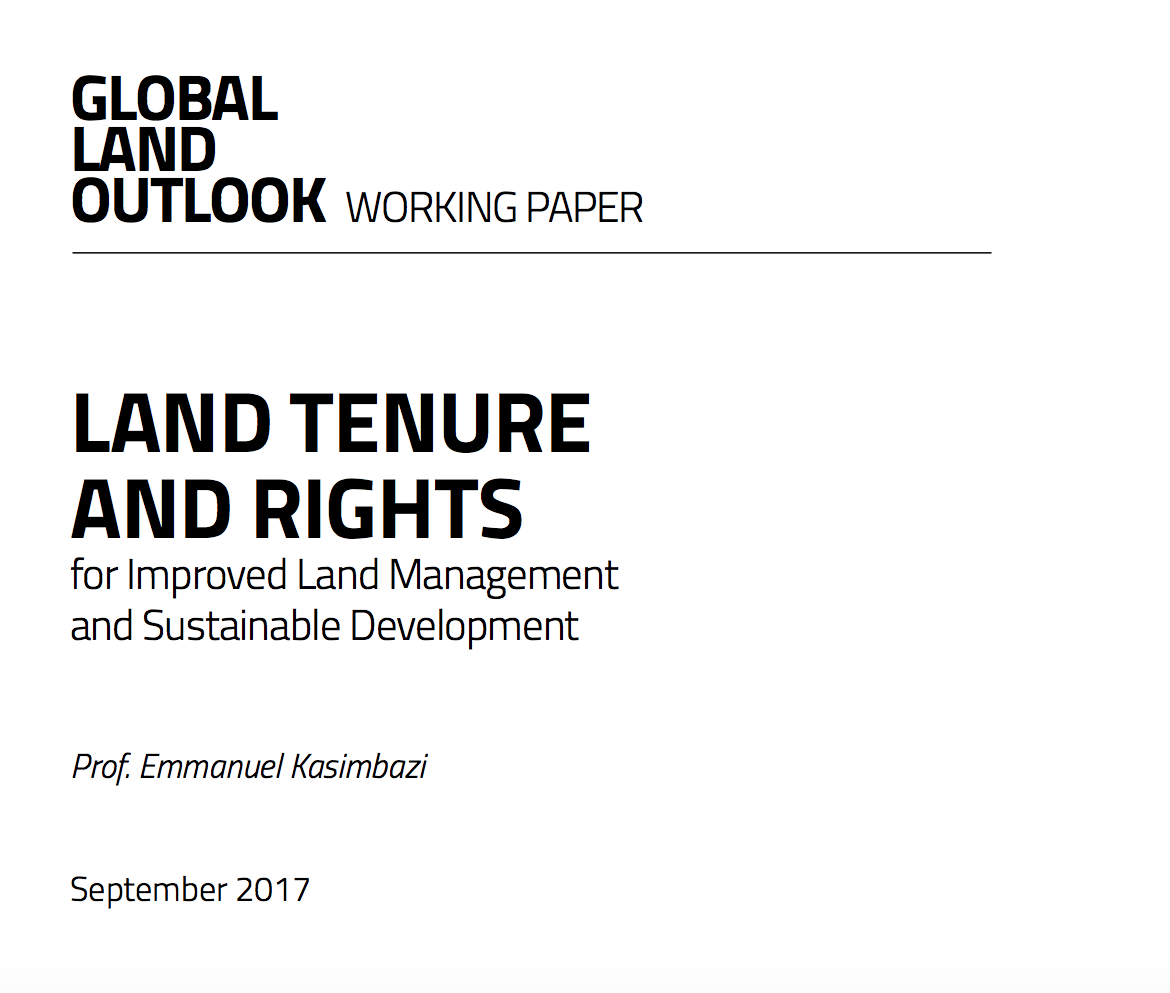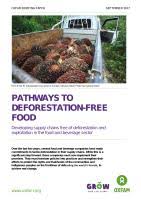Décret n° 2017-757 du 05 septembre 2017 portant engagement national en matière de neutralité de la dégradation des terres.
Le présent décret fixe l'engagement national en matière de neutralité de la dégradation des terres, en application des dispositions générales de la Convention des Nations Unies sur la lutte contre la désertification et de la Charte de l'Environnement Malagasy actualisée.
Climate Change: A Permanent Reality for Myanmar
Reshmi Banerjee gives an overview of climate change-related risks for Myanmar...According to the 2016 Climate Risk Index, Myanmar is the second most vulnerable country in the world to the effects of climate change. The intensity and regularity with which cyclones make landfall have increased with every year, with the delta region affected by tropical storms and the dry zone impacted by debilitating droughts.
Land Tenure and Rights for Improved Land Management and Sustainable Development
This working paper was commissioned by the United Nations Convention to Combat Desertification (UNCCD), in order to explore how land tenure systems in different ecosystems and bio-cultural regions around the world are linked to land degradation or sustainable land management. It is against this backdrop that five major issues surrounding land tenure, and rights for improved land management and sustainable development, are addressed; these are:
• Problems associated with land ownership (titling, tenure and customary rights);
Global Land Outlook
A new United Nations report warns that a third of the planet’s land is now severely degraded thanks to a doubling in the consumption of natural resources over the past 30 years. Some 15 billion trees and 24 billion tonnes of fertile soil are lost each year, according to the Global Land Outlook (GLO), launched by the secretariat of the UN Convention to Combat Desertification (UNCCD), at the meeting of States parties taking place in Ordos, China. The GLO takes a critical look at financial and socio-economic values of land, and its impact on the poor.
Sustainable Land Management contribution to successful land-based climate change adaptation and mitigation
The report provides scientifically sound practical guidance for selecting SLM practices that help address DLDD, climate change adaptation and mitigation, and for creating an enabling environment for their large-scale implementation considering local realities. It targets a broad audience from scientists, policy makers, landowners, community stakeholders and enterprises.
Pathways to Deforestation-Free Food: Developing supply chains free of deforestation and exploitation in the food and beverage sector
Hidden in the food we buy every day, from chocolate to ice cream, are commodities like palm oil and soy that are driving deforestation across the world. From Indonesia to the Peruvian Amazon, vast areas of carbon-rich forest are being cleared to produce these agricultural commodities, contributing to climate change and social conflict.
Mapping soil erosion hotspots and assessing the potential impacts of land management practices in the highlands of Ethiopia
An enormous effort is underway in Ethiopia to address soil erosion and restore overall land productivity. Modelling and participatory approaches can be used to delineate erosion hotspots, plan site- and context-specific interventions and assess their impacts. In this study, we employed a modelling interface developed based on the Revised Universal Soil Loss Equation adjusted by the sediment delivery ratio to map the spatial distribution of net soil loss and identify priority areas of intervention.
Social and Environmental Code of Practice (SECoP) for Responsible Commercial Agriculture in Ethiopia
The Social and Environmental Code of Practice (SECoP) for Responsible Commercial Agriculture is designed to help investors in ensuring that their investments are inclusive, sustainable, transparent, and respect human rights. While it focuses on Ethiopia, it will be a useful resource for investors and companies operating in other countries.
Scaling Up Sustainable Land Management and Restoration of Degraded Land
With current rates of land degradation reaching
ten to twelve million ha per year, there is an
urgent need to scale up and out successful,
profitable and resource-efficient sustainable
land management practices to maintain the
health and resilience of the land that humans
depend on. As much as 500 million out of
two billion ha of degraded land, mainly in
developing countries, have restoration potential,
offering an immediate target for restoration
and rehabilitation initiatives.1 In the past,
Filter Options in WebGIS sub-tool of the Geoinformatics Options by Contexts (GeOC) Tool
Presentation on Filter Options in WebGIS sub-tool of the Geoinformatics Options by Contexts (GeOC) Tool.
Statistic Summaries of SLM Options by Context in the WebGIS sub-tool of Geoinformatics Options by Contexts (GeOC)
Presentation on the Statistic Summaries of SLM Options by Context in the WebGIS sub-tool of Geoinformatics Options by Contexts (GeOC).









